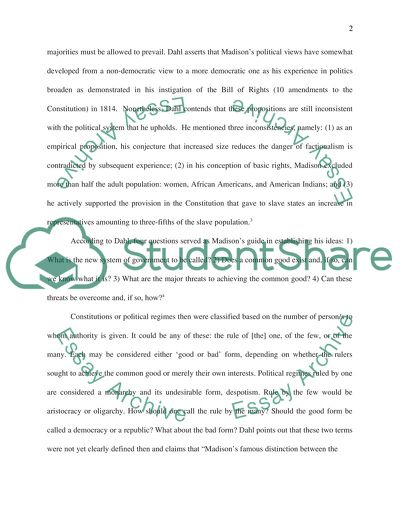Cite this document
(The Political Views of James Madison Essay Example | Topics and Well Written Essays - 1750 words, n.d.)
The Political Views of James Madison Essay Example | Topics and Well Written Essays - 1750 words. https://studentshare.org/politics/1713332-james-madison-republican-or-democrat
The Political Views of James Madison Essay Example | Topics and Well Written Essays - 1750 words. https://studentshare.org/politics/1713332-james-madison-republican-or-democrat
(The Political Views of James Madison Essay Example | Topics and Well Written Essays - 1750 Words)
The Political Views of James Madison Essay Example | Topics and Well Written Essays - 1750 Words. https://studentshare.org/politics/1713332-james-madison-republican-or-democrat.
The Political Views of James Madison Essay Example | Topics and Well Written Essays - 1750 Words. https://studentshare.org/politics/1713332-james-madison-republican-or-democrat.
“The Political Views of James Madison Essay Example | Topics and Well Written Essays - 1750 Words”. https://studentshare.org/politics/1713332-james-madison-republican-or-democrat.


